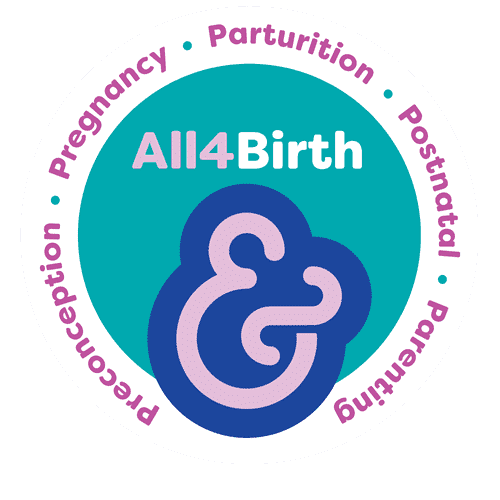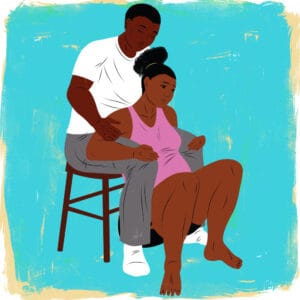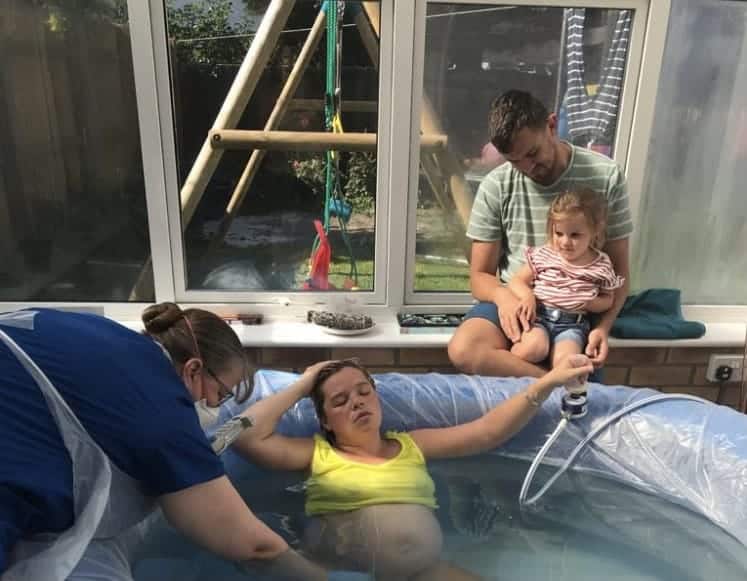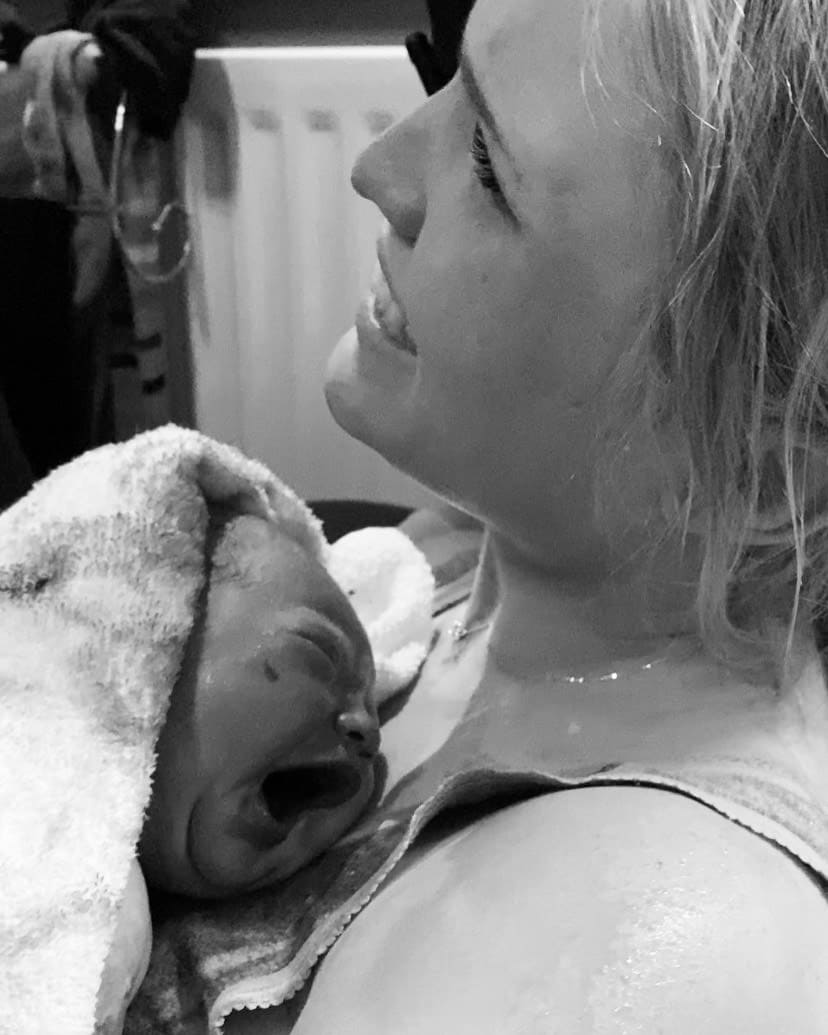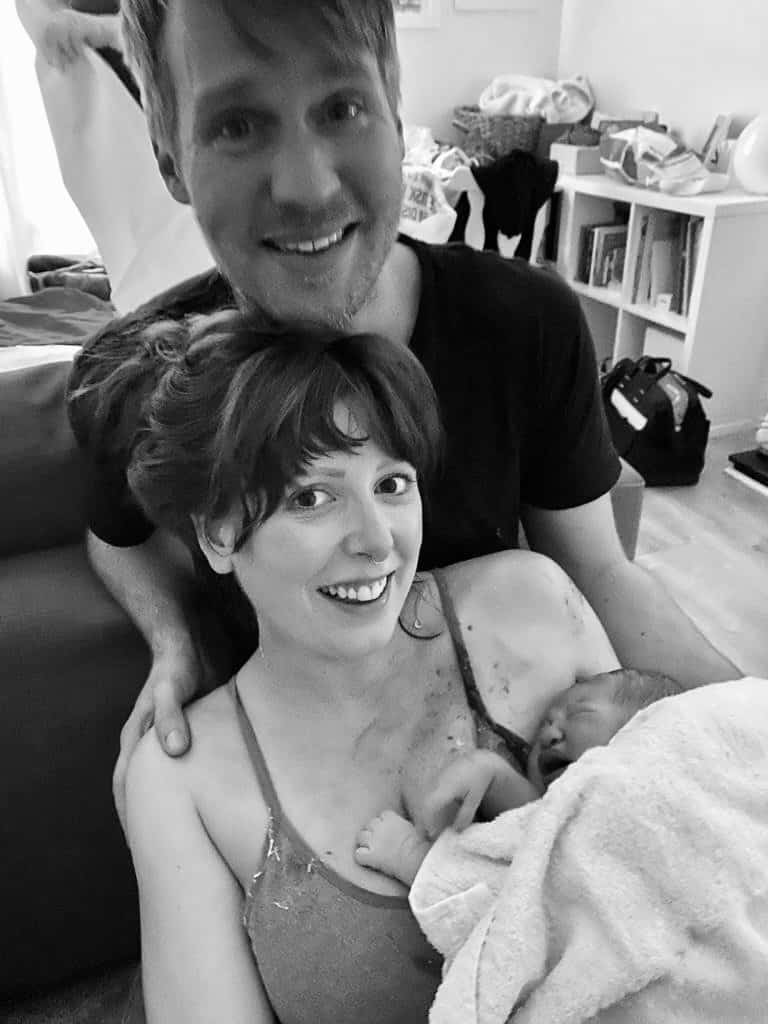Jen Tapson
Jen Tapson
DipHB (KGH) ~ PGCE (Primary Ed) ~ BA (Hons)
https://jentallbirth.wixsite.com/hypnobirthing
Instagram @allbirth_hypnobirthing

When you find out you’re pregnant, your mind may turn to the women who have gone before you and your wider family. Is your baby going to be the first grandchild on either side of your and your partner’s family? The first niece or nephew for your siblings? What about friends: are you the first in your group to fall pregnant? If you are then you may have to blaze your trail when it comes to finding your way through pregnancy and planning for your baby’s birth. However, even if your baby is not the first in your family or social circle you may still have to forge your path because you may want something that none of your loved ones has done before…
In my role as an antenatal and hypnobirthing teacher and infant feeding supporter, I teach expectant parents about achieving positive pregnancies and preparing for birth with confidence and calm. The main lightbulb moment tends to be when expectant parents learn the extent of the options they have in their pregnancy and labour. Take the time I idly asked a couple who were having an elective section which song their baby would be born to. They hadn’t even considered having music when their baby was born but told me after that playing a favourite tune during the birth had made such a positive difference to the experience. For your baby, being born to a song you and your partner have enjoyed and relaxed to in pregnancy would be as calming for them as it is for you – result. I spoke with another couple who were not finding out their baby’s gender until they were born. I explained that either parent could be the first person to touch their baby and check/announce their gender to each other. This type of gender reveal may not be the norm for everyone but someone had to be the first and this could be you! For years doctors or midwives handled babies first and called out, “It’s a ______!” until someone decided that they would do it for themselves instead. There could be something uncommon that you and your partner are thinking about now for your baby’s birth and even if it’s never been done before someone has to be the first.
Gentle caesareans were first described in the British Journal of Obstetrics and Gynaecology in 2008 with the extended gentle CS protocol being shared in 2017. There is always an idea or research behind it. In this case, “NICE recommend that women’s preferences for birth such as de-medicalisation of the delivery experience should be facilitated where possible.” The guidance is there but it takes parents and caregivers working together to ensure it is achieved. Someone had to be first to do this and get the gentle caesarean they were after!
I am the first woman (to my knowledge) in my family to have had a home birth but the evidence made it the obvious choice for me. Don’t get me wrong when it is mentioned that I had my daughter at home I have been met with a few wild-eyed stares whilst being asked, “On purpose?!” Yes, it was planned I say, not only because she was born during the covid pandemic when the LAST thing I wanted was to take myself or my brand new baby to a hospital full of sick people but also because I get my kicks reading things like the Lancet study (2020) that reported women who intended to give birth at home compared with those planning a hospital birth were 40% less likely to give birth by caesarean section; 50% less likely to have an assisted birth; 70% less likely to have an epidural; 55% less likely to have an episiotomy; 40% less likely to experience a 3rd or 4th-degree perineal tear; 75% less like to report a maternal infection and 30% reduction in reporting postpartum haemorrhage. Sold! Homebirth was for me. There were whispers from loved ones about their nerves for me but I just had to clock out and remind myself that their nerves were not my nerves. I felt confident that I could give birth at home.
During my time as an infant feeding supporter and even before I have heard from women who felt they wouldn’t be able to breastfeed because their mum/sister/aunt couldn’t. Fortunately, the percentage of women who physically cannot feed is very low but where do you turn if you know it’s something you want to do for your baby but have no family or friends to ask for advice? Just the other day, a celebrity posted about their anxieties as a new mum and how they are pumping through the night even when their baby is sleeping through to maintain their supply. The first comments posted in reply were advising this public figure to combination-feed as it would make their life so much easier. What? I posted explaining that this was not a solution to the issue the celeb had raised and they had said they were possibly just posting to vent a little. I instead suggested they stretch their pumping windows through the night and express just enough, even by hand, until they are comfortable enough to go back to sleep. I was trained by NCT under my area’s ‘Beside You’ organisation. Their website is full of information and videos to support parents – however, they choose to feed their baby. It is worth asking your midwife or health visitor what feeding support is available in your area especially if you are choosing a path different to how your support system has fed their babies.
The light at the end of the tunnel should be that though you may be making different choices to those your loved ones made your baby is different to everyone else’s and you know them best so you are equipped to make the best possible choices for your child.
Links to other resources
 Podcasts
Podcasts
The Motherly Podcast: Author Abigail Tucker on the amazing ways our brains change after giving birth
 Social Media
Social Media
 Websites
Websites
References
- NHS Lanarkshire (2023) Guideline for Implementation of ‘Gentle Method’ Elective
Caesarean Sections in NHS Lanarkshire. Available at: https://rightdecisions.scot.nhs.uk/media/2300/gentle-method-caesarean-section.pdf - Christoph, P., Aebi, J., Sutter, L., Schmitt, K. U., Surbek, D., & Oelhafen, S. (2023). The extended gentle caesarean section protocol-expanding the scope and adding value for the family: a cross-sectional study. Archives of gynecology and obstetrics, 307(5), 1481–1488. https://doi.org/10.1007/s00404-023-06913-0
- National Institute for Health and Care Excellence. (2017). Quality standard for Intrapartum Care. Available at: https://www.nice.org.uk/guidance/qs105
- Reitsma, A., Simioni, J., Brunton, G., Kaufman, K., & Hutton, E. K. (2020). Maternal outcomes and birth interventions among women who begin labour intending to give birth at home compared to women of low obstetrical risk who intend to give birth in hospital: A systematic review and meta-analyses. EClinicalMedicine, 21, 100319. https://doi.org/10.1016/j.eclinm.2020.100319
